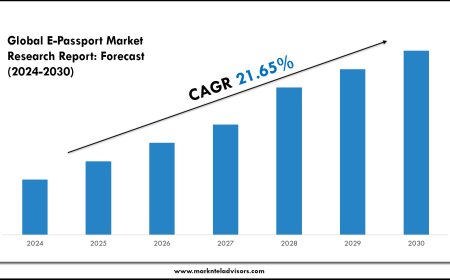Finding the Right Weight Management Doctor for Your Health Journey
If you're struggling with weight loss or want to understand your body’s unique challenges, working with a weight management doctor can make all the difference.

In a world where health goals often include maintaining an ideal weight, the role of a weight management doctor is more vital than ever. Whether you're dealing with obesity, metabolic disorders, or simply need structured support to shed a few extra pounds, these specialized physicians offer personalized medical strategies to help you meet your health and wellness goals.
What Is a Weight Management Doctor?
A weight management doctor is a licensed medical professional with advanced training in nutrition, metabolism, endocrinology, and behavioral science. These doctors focus on identifying the underlying causes of weight gain and creating customized treatment plans that combine medical, dietary, and lifestyle interventions. Their approach goes beyond typical diet fads, providing medically supported pathways to safe and sustainable weight loss.
Credentials and Specializations
Most weight management doctors are board-certified in internal medicine, family medicine, or endocrinology. Many pursue additional certifications in obesity medicine, which ensures their expertise in managing complex cases involving hormonal imbalances, thyroid issues, and chronic metabolic conditions.
Why Medical Supervision Matters for Weight Loss
Attempting to lose weight without guidance can be challenging and, in some cases, dangerous. A weight management doctor provides essential medical oversight to ensure your plan is safe, effective, and adapted to your individual needs. They evaluate your health history, lab results, and lifestyle before prescribing treatments, which may include:
-
Prescription weight-loss medications
-
Medically supervised diets
-
Hormonal evaluations
-
Exercise recommendations tailored to your physical capacity
-
Mental health and behavioral counseling
Medical supervision ensures that any underlying health conditions are addressed during the weight loss journey, minimizing risks and enhancing long-term success.
Common Health Issues Addressed
Many individuals who visit a weight management doctor are not just seeking aesthetic changesthey're tackling significant health challenges. Some of the most common conditions that accompany excess weight include:
-
Type 2 diabetes
-
High blood pressure
-
Sleep apnea
-
Polycystic ovary syndrome (PCOS)
-
High cholesterol
-
Osteoarthritis
-
Non-alcoholic fatty liver disease
A weight management doctor creates a strategy to manage or reverse these conditions while also helping patients achieve a healthy body weight.
Personalized Treatment Plans
No two patients are the same. That's why a weight management doctor provides tailored solutions based on your specific needs. After an in-depth consultation and diagnostic assessment, they may recommend a combination of the following:
Medical Weight Loss Programs
These include structured, physician-monitored plans that might involve meal replacements, calorie restriction, appetite suppressants, and frequent check-ins. The goal is to produce weight loss while ensuring you're not sacrificing vital nutrients or putting your health at risk.
Behavioral Therapy
A weight management doctor often works with psychologists or offers behavioral counseling themselves to help address emotional eating, stress-related weight gain, or disordered eating patterns. Understanding the psychological triggers behind eating habits is essential to achieving lasting change.
Nutritional Counseling
Customized diet plans are a cornerstone of any program. A weight management doctor might refer you to a registered dietitian or provide nutrition plans that align with your medical profile, allergies, and food preferences.
Hormonal and Metabolic Testing
If you're not losing weight despite your efforts, hormones could be at play. Your weight management doctor can test for thyroid dysfunction, insulin resistance, cortisol levels, and other hormonal imbalances that may interfere with weight loss.
Exercise Planning
Physical activity is crucial but must be aligned with your physical condition. A weight management doctor recommends exercise routines based on your age, weight, joint health, and stamina to avoid injury while maximizing results.
Benefits of Seeing a Weight Management Doctor
The advantages of working with a weight management doctor are extensive:
-
Individualized plans that match your metabolism and health profile
-
Evidence-based treatments with scientific backing
-
Fewer complications due to regular medical oversight
-
Sustainable weight loss through lifestyle modifications
-
Better health outcomes, including improved blood sugar and cholesterol levels
Unlike generalized weight loss programs, medical weight management is designed to adapt with your body as you progress, ensuring lasting results.
Ideal Candidates for Medical Weight Loss
A weight management doctor can help almost anyone looking to improve their health, but ideal candidates often include:
-
Individuals with a BMI over 30 (or over 27 with related health conditions)
-
People who have failed to lose weight through diet and exercise alone
-
Those experiencing weight gain due to hormonal or metabolic issues
-
Individuals with stress- or medication-induced weight gain
-
Patients preparing for surgery who must lose weight beforehand
Even if youre only slightly overweight but have a family history of metabolic diseases, seeking help early from a weight management doctor can prevent future complications.
What to Expect During Your First Visit
Visiting a weight management doctor for the first time usually involves:
-
A detailed medical history review
-
Body composition analysis (weight, BMI, fat percentage)
-
Blood tests to assess cholesterol, blood sugar, and hormone levels
-
A discussion about lifestyle, eating habits, and exercise
-
Creation of a personalized treatment plan
-
Scheduling of follow-up visits to monitor progress
Follow-up appointments are critical to ensure the plan remains effective and to make necessary adjustments.
Medications Often Prescribed
Depending on your health status, a weight management doctor may prescribe FDA-approved medications to aid weight loss. These could include appetite suppressants, fat absorption inhibitors, or medications that regulate blood sugar. Some commonly used drugs in clinical practice include:
-
Phentermine
-
Orlistat
-
Liraglutide
-
Naltrexone-bupropion
These are always prescribed based on medical necessity and potential side effects, and never as a standalone solution. Theyre most effective when combined with diet and lifestyle changes.
Monitoring and Long-Term Maintenance
Losing weight is only part of the journey. Maintaining it is where many people struggle. A weight management doctor focuses on long-term lifestyle adjustments, periodic monitoring, and continued support to help you stay on track. This might involve ongoing check-ins, lab testing, and updates to your nutrition and activity plans.
Addressing Weight Stigma and Emotional Support
Many people hesitate to seek help due to fear of judgment. A qualified weight management doctor offers a non-judgmental, supportive environment where patients are treated with respect. Emotional well-being is an integral part of any weight loss program, and many clinics integrate counseling or group support.
Telehealth Options
With advancements in digital healthcare, many weight management doctors now offer telehealth consultations. These virtual visits are ideal for progress tracking, dietary adjustments, prescription refills, and behavioral supportallowing you to stay engaged without frequent in-person visits.
Frequently Asked Questions
How long does it take to see results?
Results vary by individual. Many patients begin to see changes in 46 weeks with consistent effort and adherence to the plan.
Is medical weight loss safe?
Yes, especially when overseen by a licensed weight management doctor. Regular monitoring ensures safety and timely interventions.
Can I stop seeing the doctor once I lose weight?
Ongoing maintenance visits are encouraged to prevent relapse and to adjust plans as your body changes.
Do insurance plans cover weight management services?
Some insurance providers cover visits, lab tests, and prescribed medications. Always verify coverage in advance.
Can children or teens see a weight management doctor?
Yes, many offer services for pediatric patients, with programs tailored to their developmental needs.
Conclusion
Weight management is not a one-size-fits-all journey, and the support of a knowledgeable weight management doctor can make a substantial difference in achieving and maintaining your goals. From accurate diagnoses and personalized treatment plans to safe medication use and behavioral support, these specialists provide the tools and guidance needed to navigate the complexities of weight loss. Prioritizing your health means partnering with professionals who understand every aspect of the processand that starts with finding the right weight management doctor today.


































